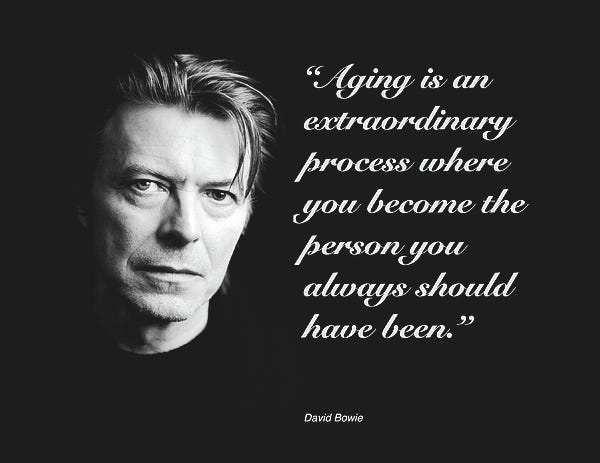How to Handle Medical Gaslighting
When a doctor dismisses your health concerns, it's time to fight back.
Hello, readers, old and new! While you’re here, let your lovely fingers dance upwards to tap the heart ❤️. A little love goes a very long way! And fills my tank, er, my heart.
After writing about dry eye in my last newsletter, a reader was moved to share her very unpleasant medical experience:
“When I went to my eye doc at age 58 worried about how my eyes were leaking tears for no reason, he just gave a little shrug and said, ‘You're getting old.’ Great. He offered me no remedies.”
AARRGGHH‼️
What happened to the Hippocratic oath, to do no harm?
What happened to a doctor listening to a patient’s concern, and responding with helpful and compassionate care?
What about advocating for their patient and helping them solve their problem?
Medical gaslighting is trivializing or minimizing your concerns, invalidating and/or dismissing your symptoms, refusing appropriate treatment or testing.
Medical gaslighting is maddening. And it can be dangerous, too. Why? Medical gaslighting can not only lead to the wrong diagnosis, it can, in some cases, even prove fatal.
Another fallout: Patients may question their own judgement, thinking things like, “Am I making this up? Imagining it?” It’s easy to see how this can lead to depression, avoidance, health care-related anxiety and other levels of trauma for you, the patient. As a result, the patient may also (mistakenly) minimize or downplay their symptoms, fearful they’ll appear anxious or neurotic, and may harm themselves by delaying or avoiding treatment altogether.
Unfortunately, medical gaslighting disproportionately affects both women and people of color; it is their symptoms that often are attributed to psychological causes or dismissed altogether.
So, here we are. Being told our health problems aren’t “real,” but instead we’re suffering from stress, hormones, and anxiety. It’s just our imagination, after all.
I have my own story - and I’m sure many others of us have stories, too - which dates way back, before there was a name for this. When I voiced my anxiety about other cancers after getting a breast cancer diagnosis, my (male) gynecologist shot back with:
“You’re worried about that?? Your chances of getting hit by a bus are much greater!”
What??? I wanted to shout. (And a few expletives.) But instead, I stayed silent, too shocked to speak. I felt shame, self-doubt, and embarrassment; unsure of what to do with my worries.
But one thing I knew for sure was that it was time to find a new gynecologist, and I did. A female, by the way. (That’s not to say all male gyn’s are this way…but the female I still use would never, ever, dismiss me that way.)
What I’m getting to is this: We must be our own health advocates and put the frustration to work for us in a positive way. Here are some suggestions:
Keep records. Log a detailed record of your symptoms (a pretty notebook makes it feel even better); when they occur, and how often they occur. Look for any clues, triggers or patterns.
Do your research. That’s not to say you should try to diagnose your own problems and rely solely on Dr. Google. But, try to gain a solid understanding of what’s happening, and the lingo, so that you’re able to ask informed questions and participate in discussions with your doctor. (Some helpful resources include the Centers for Disease Control and Prevention (CDC), Food and Drug Administration (FDA), Mayo Clinic, Cleveland Clinic, and MedlinePlus.
Prepare a list of questions. This will help you focus on your concerns and treatment options. It’s also wise to bring along a list of your current prescriptions, over-the-counter supplements or vitamins, past medical records, drug allergies and personal and family medical history.
Bring someone with you. It’s always good to have an extra set of ears, be it from a family member or friend. Even more helpful is for them to jot down notes while you speak, so you don’t have to be distracted.
Ask for clarification. If something isn’t clear, say so. If something is confusing, ask questions. You deserve to understand everything you need to about your personal health. Sometimes clinicians forget to use layman’s language; ask them to put it in simple terms - and don’t be embarrassed!
Be THAT person. Love and care for yourself. Xo
Thanks for reading. Please feel free to leave a comment or share your own story - I love to hear from my readers.




The ability to listen is so important in choosing a physician.
I see it every day in our community. Women show up with symptoms, only to be told it’s “just stress” or “just aging.” And yet the data proves what we feel: menopause care and midlife health are chronically under-taught and underfunded. No wonder so many of us leave appointments with more shame than solutions.